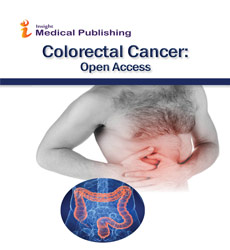Abstract
Comparison of Genetic, Protein Expression and Clinicopathological Parameters in Patients with Colorectal Cancer having Vegetarian vs Mixed Diet
Purpose: To assess the prevalence of KRAS codon 12/13 mutations and protein expression in patients with Colorectal Cancer (CRC). The outcomes were correlated with clinicopathological characteristics in vegetarian versus mixed diet population.
Methods: Dietary patterns were correlated with demographic and clinicopathological characteristics including KRAS codon 12/13 mutations and their protein expressions.
Results: Retrospective analysis was performed on 78 CRC patients, 55% of whom were men and had a median age of 56 years. Majority of the patients were vegetarian (73%) while remaining had a mixed diet. The association between dietary patterns and clinicopathological characteristics was observed and vegetarianism was more prevalent in patient with early and advanced cancer stages. The final histopathology revealed a statistically significant correlation between KRAS codon 12 mutations (23%) and necrosis (p=0.025) as well as a higher death rate (p=0.021). In the subgroup of rectal cancer patients, positive K-ras protein expression was linked to a higher risk of disease relapse (p =0.045). Vegetarians had higher levels of B-raf protein expression and was associated with poor prognostic factors, such as perineural invasion (86%) (p=0.051), positive lymph nodes (p=0.020) and high circulating carcinoembryonic antigen levels (>5.0 ng/ml) (p=0.006).
Conclusion: In our study, we found a higher prevalence of vegetarianism in patients with both early and advanced cancer stages. Among vegetarian patients, a link between B-raf protein expression with unfavorable prognostic factors was also observed. KRAS codon 12/13 mutations and K-ras/ B-raf protein expression may act as vital prognostic and predictive indicators in CRC patients.
Author(s): Nikhil Garg
Abstract | Full-Text | PDF
Share this

Google scholar citation report
Citations : 92
Colorectal Cancer: Open Access received 92 citations as per google scholar report
Abstracted/Indexed in
- Google Scholar
- JournalTOCs
- China National Knowledge Infrastructure (CNKI)
- Directory of Research Journal Indexing (DRJI)
- WorldCat
- Publons
- International Committee of Medical Journal Editors (ICMJE)
- Secret Search Engine Labs
Open Access Journals
- Aquaculture & Veterinary Science
- Chemistry & Chemical Sciences
- Clinical Sciences
- Engineering
- General Science
- Genetics & Molecular Biology
- Health Care & Nursing
- Immunology & Microbiology
- Materials Science
- Mathematics & Physics
- Medical Sciences
- Neurology & Psychiatry
- Oncology & Cancer Science
- Pharmaceutical Sciences

